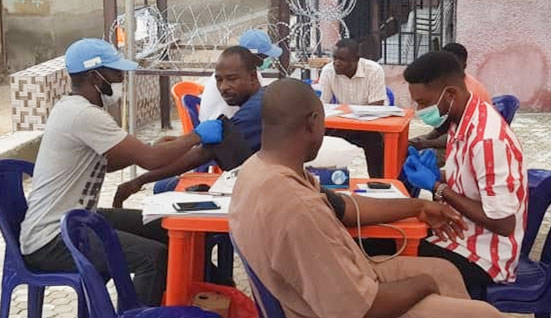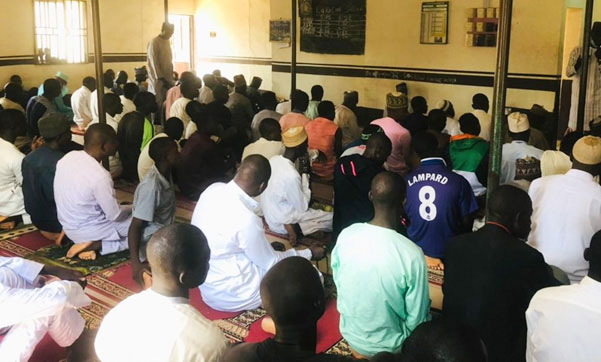Engaging CBO Activities on the Diabetes Awareness and Care (DAC) Project in the FCT
A key objective of the Diabetes Awareness and Care (DAC) project is to increase awareness of Type 2 Diabetes Mellitus in select communities in Imo and the FCT. The project implementation kicked off in the FCT in 2018, with interventions in 54 health facilities and several community awareness activities.
At the community level, the project engaged a Community-Based -Organisation (CBO), Society for Women Development and Empowerment of Nigeria (SWODEN) to conduct outreach activities in the FCT to sensitize and screen persons for Type 2 Diabetes Mellitus.
Community Activities
Since it commenced operations, SWODEN has engaged with community gatekeepers, community members and various groups to achieve its objectives. It has adopted advocacy visits, town hall meetings, roundtable discussions, focal group discussions, market day outreaches amongst others. In addition, screening camps have been set up at these outreaches, where people have been encouraged to undergo a risk assessment with a counsellor. This includes taking a medical history, anthropometric measurements, and biomedical tests. Individuals who have been found to be hyperglycemic or at high-risk of developing diabetes at such encounters have been referred to a treatment centre.
Recently, the CBO team visited Lugbe, Sokale and Dutse Alhaji communities in the FCT. A stakeholder engagement meeting was convened in Dutse Alhaji and Sokale communities to discuss insights from community activities. The community gatekeepers commended the project team’s efforts and pledged their continuous support to implement and spread awareness messages on Type 2 Diabetes in their communities.

Screening Activities in Dutse Alhaji, Bwari 
Sensitization at a Mosque in Sokale Community
In Lugbe, the team conducted similar activities reaching over 1,500 persons with awareness messages and screening 240 persons for Type 2 Diabetes risk factors. Through this, the team identified 15 new cases and 20 old cases of hyperglycemia, and referred them for specialist care.
Results
Since the project commenced in 2018, the CBO team has visited over 20 communities in the FCT, reaching more than 150,000 persons with awareness messages and screening about 22,000 persons for risk factors.
By HSDF’s Public Health Advisory team. Specific contributors were Priye Igali and Niyi Agbaje
Grants and Business Development Specialist
We are seeking a highly motivated and experienced Grants and Business Development Specialist to join our organization. The successful candidate will be responsible for identifying funding opportunities, developing grant proposals, and fostering partnerships with potential donors and stakeholders (regional and global). This role plays a vital part in securing funds and resources to support our organization’s mission and projects.
Apply NowPublic Health Consultant, Guinea
The consultant (working with the Accelerator team) will collect results from the tool, organize a meeting with stakeholders to discuss results from the tool, and produce a report on key findings and recommendations from the tool to be shared publicly.
Apply NowPublic Health Associate, Senegal
We are currently in search of an experienced Public Health professional in Senegal to work on the anticipated Nutrition Capacity Development and Financing Platform and provide technical assistance to elevate nutrition financing and strengthen local capacity to support these efforts. The Associate must be bilingual (English and French).
Apply Now